Transforming early childhood outdoors space
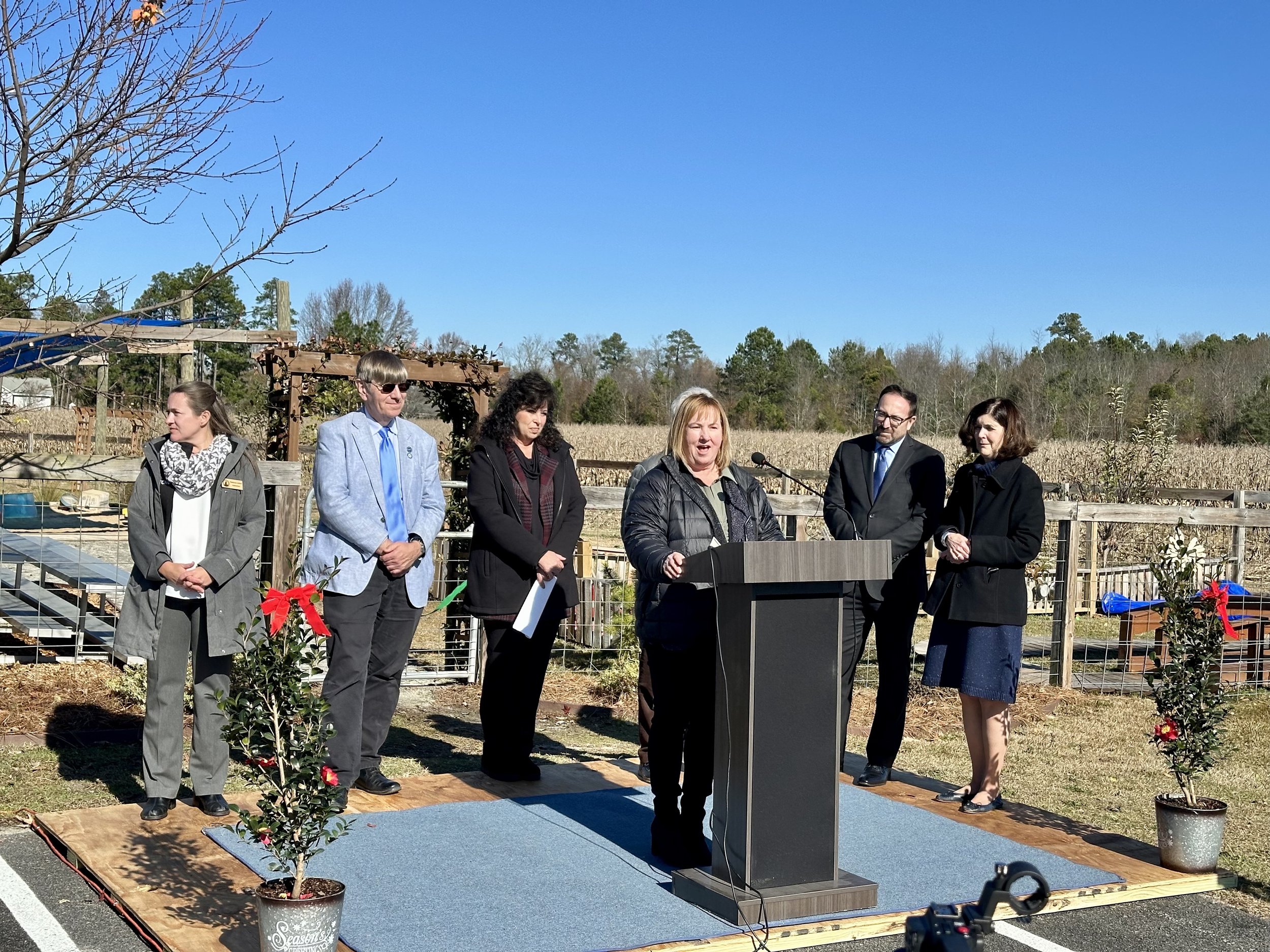
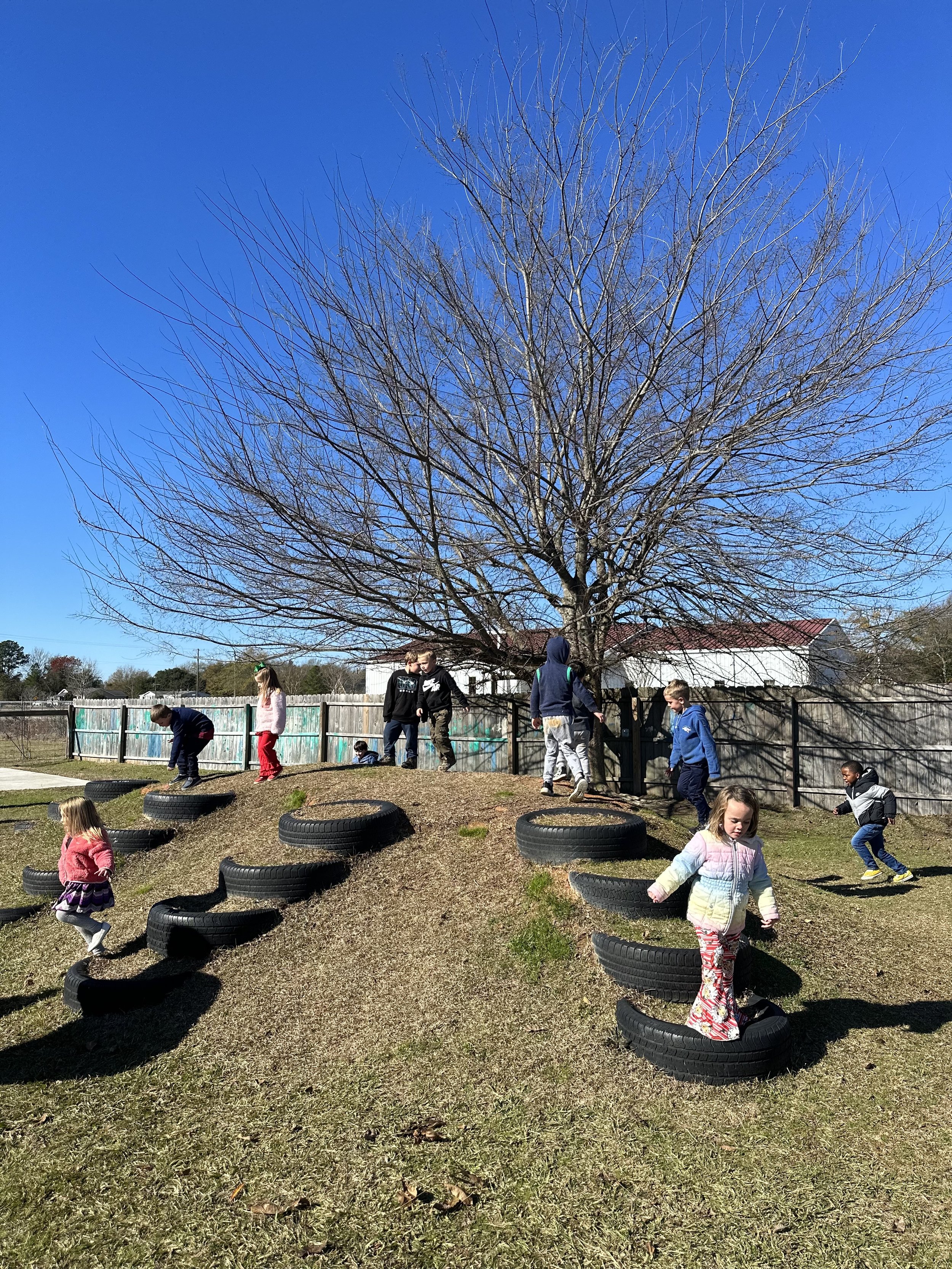
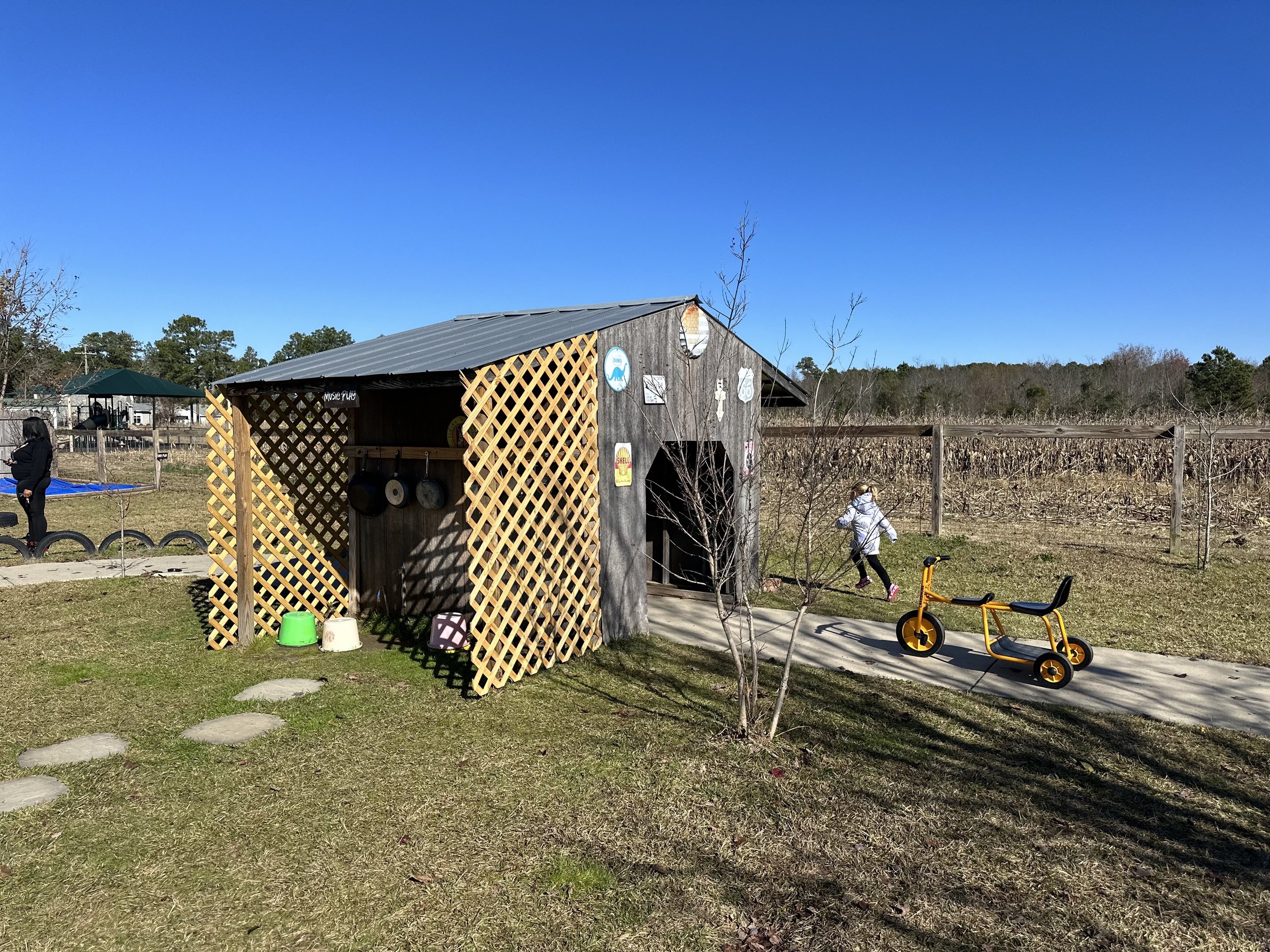
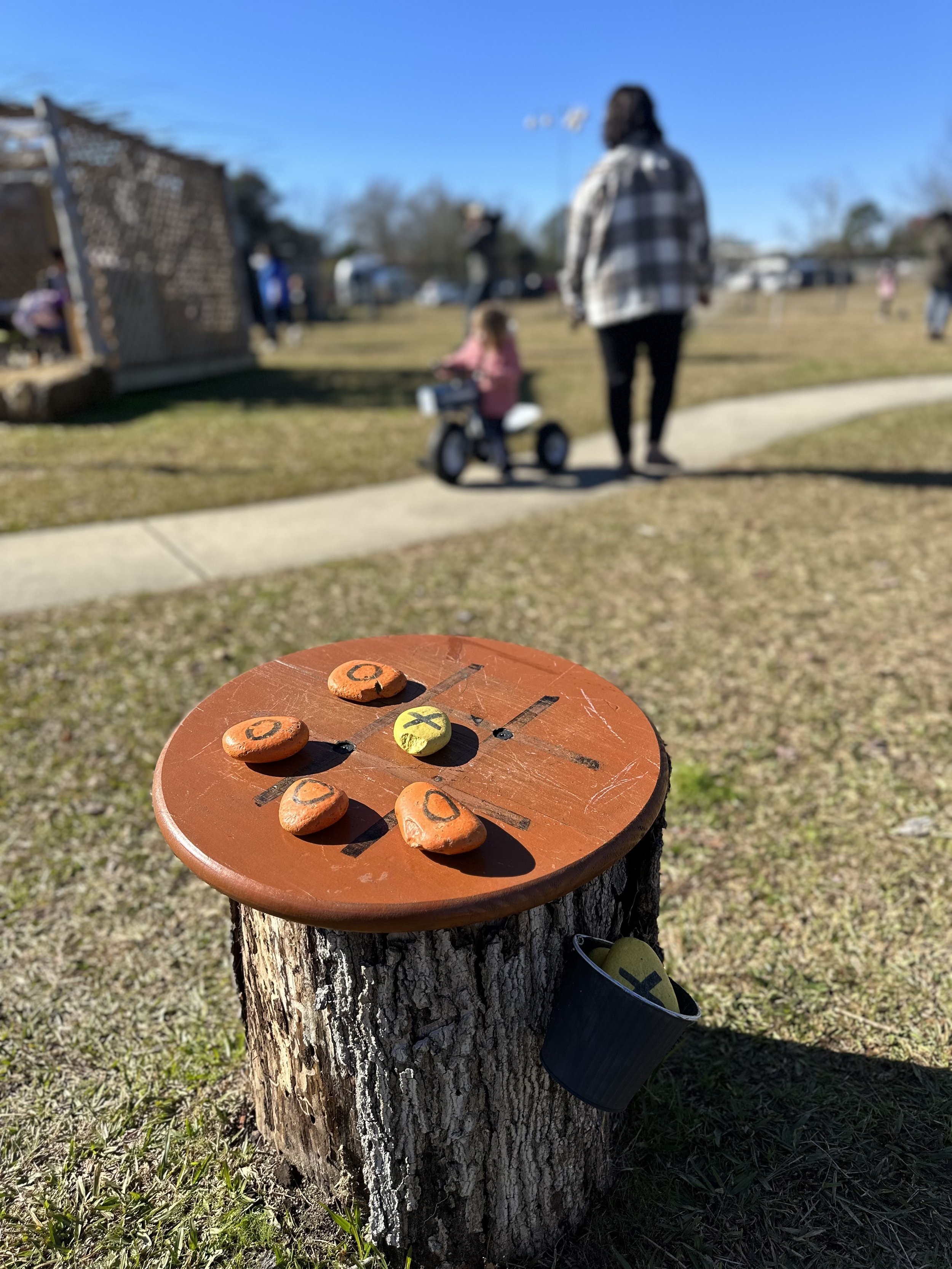
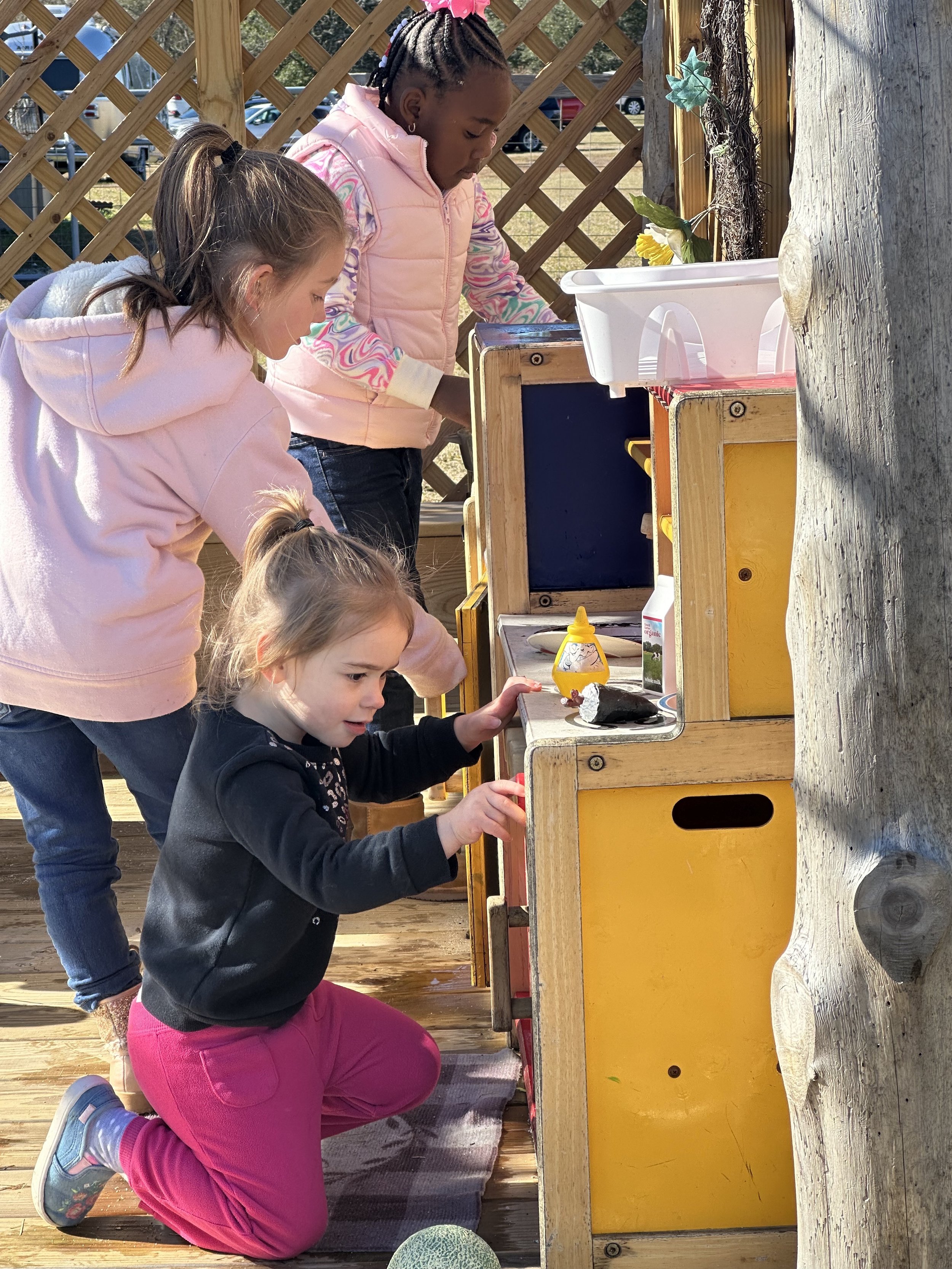

When I think back to some of my fondest childhood memories, many of them are outdoors. They are the days I was exploring the woods, riding my four-wheeler, swinging from the big oak tree in the backyard, picking plums, or helping my parents in the garden, pretending I was on the top of a mountain (aka my dad’s big pile of dirt he was using for some construction project), etc., etc. I could go on and on because there are so many memories to share, but I'll stop there.
Through our firm’s work with Grow Outdoors SC, I have learned that the childhood I experienced isn’t the childhood many are experiencing today. We have replaced chasing butterflies for racing cars on an X Box. We have replaced getting messy in the dirt with increased time in front of the television. We often limit our children’s independence outdoors because of our own, mostly unfounded, fears (bugs, creatures, strangers, weather, potential boo-boos).
Thankfully, Grow Outdoors SC has a vision that all children in South Carolina spend time outdoors for health, happiness, and a greater appreciation of nature. Grow Outdoors SC is transforming early childhood spaces into diverse, naturalized environments that spark play and learning by partnering with the SC Department of Health and Environmental Control and the SC Department of Social Services Division of Early Care and Education.
Our team was there this week as they publicly launched the initiative, which has been in the piloting phase for several years. On the podium to share the announcement were DSS State Director Mike Leach, DHEC Director Dr. Edward Simmer, Early Childhood Health Outdoors Senior Director of Design and Engagement Rebecca Colbert, and the Natural Learning Initiative’s Co-founder Robin Moore. For those who couldn’t be there, I want to share some highlights and why I found them important.
We can’t do it alone. This is how Dr. Simmer described the importance of partnerships. He knows collaboration is key with an initiative of this nature, which is why there were four entities on the podium—not just one. Transformation requires collaboration and a long-term commitment to each other.
In the end, it’s all for the children. Yes. It. Is. So often, we adults get stuck in our jobs’ day-to-day inner workings and forget why we do what we do. In this case, it absolutely is all about the children. Watching preschool children be a part of the ribbon-cutting ceremony was a treat. And, as the adults enjoyed a tour of the facility, the kids just enjoyed being kids. They were playing, laughing, and running, and it was a joy to watch their love and appreciation for the outdoor play space. Not for a second do I think they have missed the plastic, large play spaces that we are accustomed to seeing on playgrounds. A colleague even leaned over to me during the event and said, “It’s good to get out of Columbia and remember who this work is for.”
Outdoor experiences are transformative for children. A naturalized outdoor play and learning environment helps children engage in a wide range of activities, such as digging, building, running, and exploring the natural world. This type of environment supports children’s physical, social, emotional, and cognitive development by providing opportunities to develop skills such as problem-solving, creativity, risk-taking, and collaboration. Through efforts like Grow Outdoors SC, we are building a foundation of love for our earth and a generation of children who care about the environment.
Physical activity is down among South Carolina’s children. Yet, we know that one of the strongest predictors of children’s physical activity is time spent outdoors. More outdoor time is linked to improved motor development and lower obesity rates. Grow Outdoors SC can’t reach every child in the state, but for the tens of thousands of children in South Carolina who spend up to 10 hours a day at their childcare program, it can enormously impact their health and well-being.
As Robin Moore said, “One word that always comes to my mind is diversity.” In this case, he means a diversified landscape. Childcare providers who may be interested in transforming their outdoor play space should know that not everything has to be changed overnight. It is incremental changes in outdoor spaces that can make a big difference. But, starting with a landscape design plan—one component of the Grow Outdoors SC process—can give a childcare program the road map they need to start making changes.
While I believe this effort will truly make a difference in the health and well-being of the next generation, I hope it will also create lasting memories for them that they will look back on and smile. To learn more about Grow Outdoors SC and today’s media announcement, click here.
View Coverage of the event:
WOLO (ABC Columbia)
WLTX (CBS Columbia) - SC Initiative encouraging outdoor play welcomes new partners | wltx.com
WIS TV (NBC Columbia) – 4pm | 6pm
WMBF (NBC Myrtle Beach)
WYFF (NBC Greenville)
